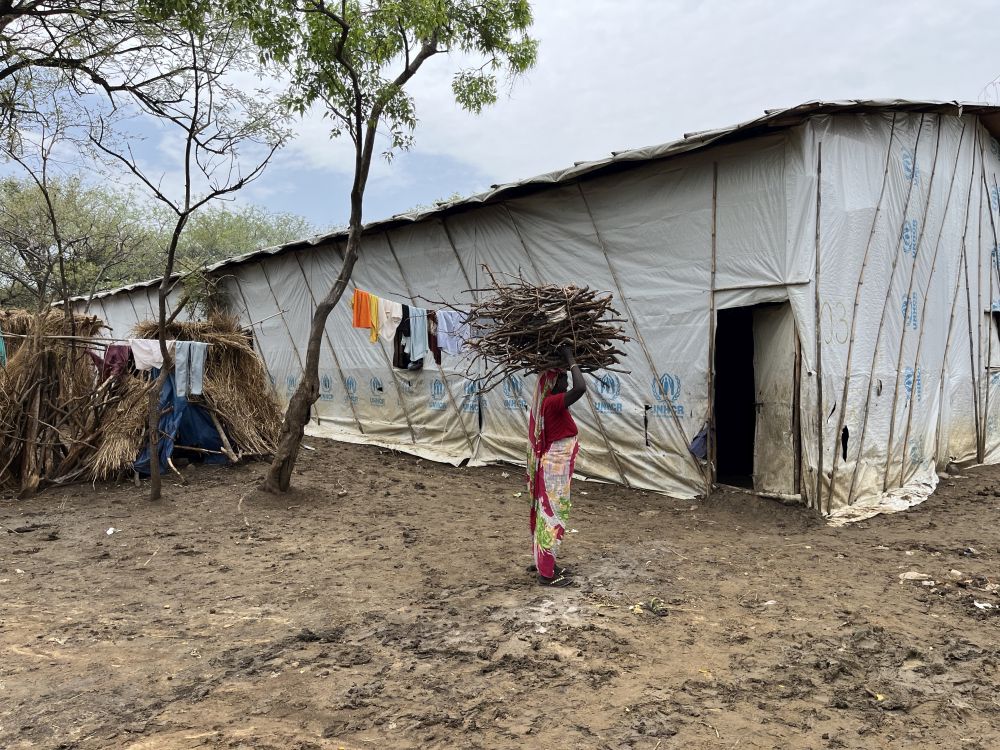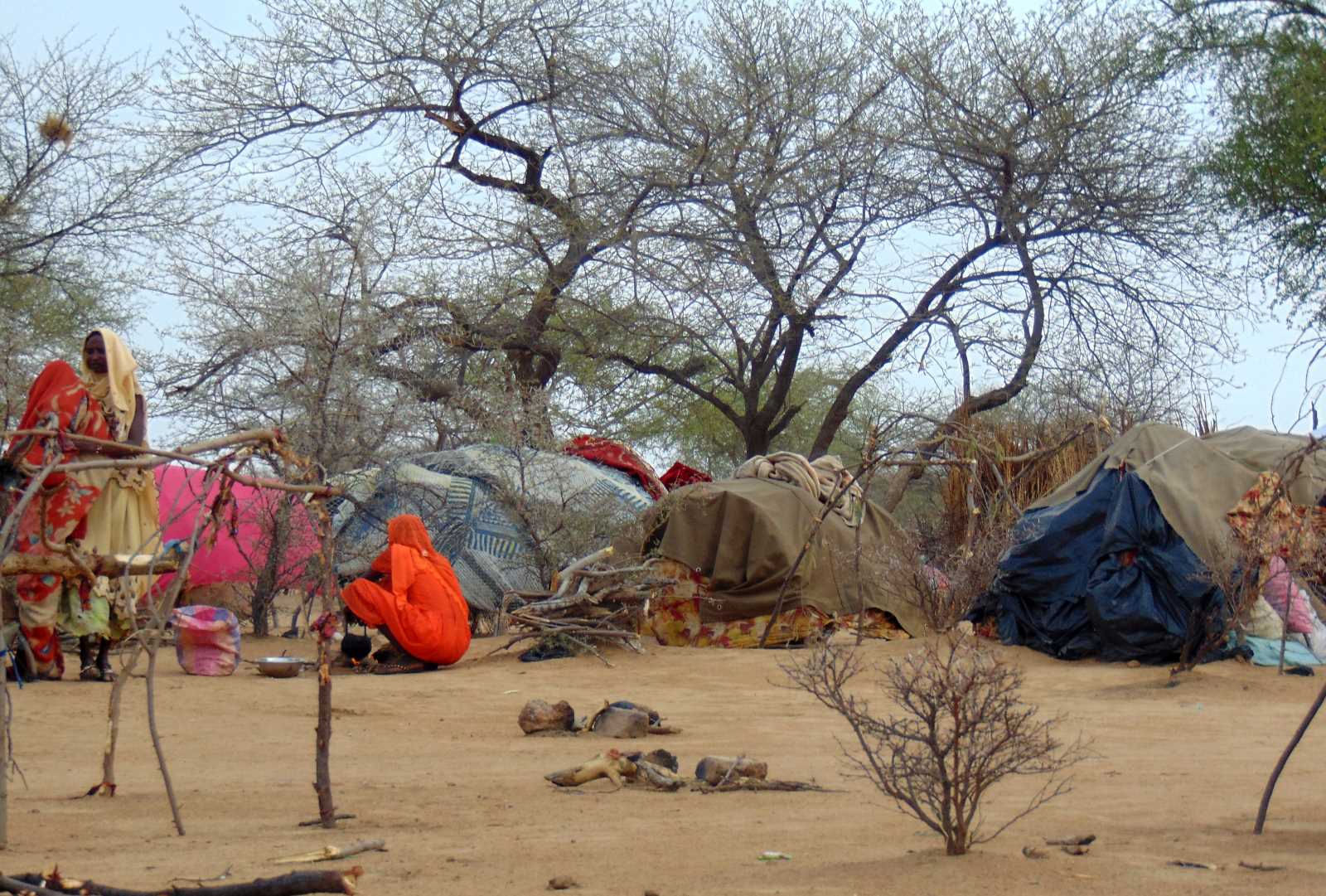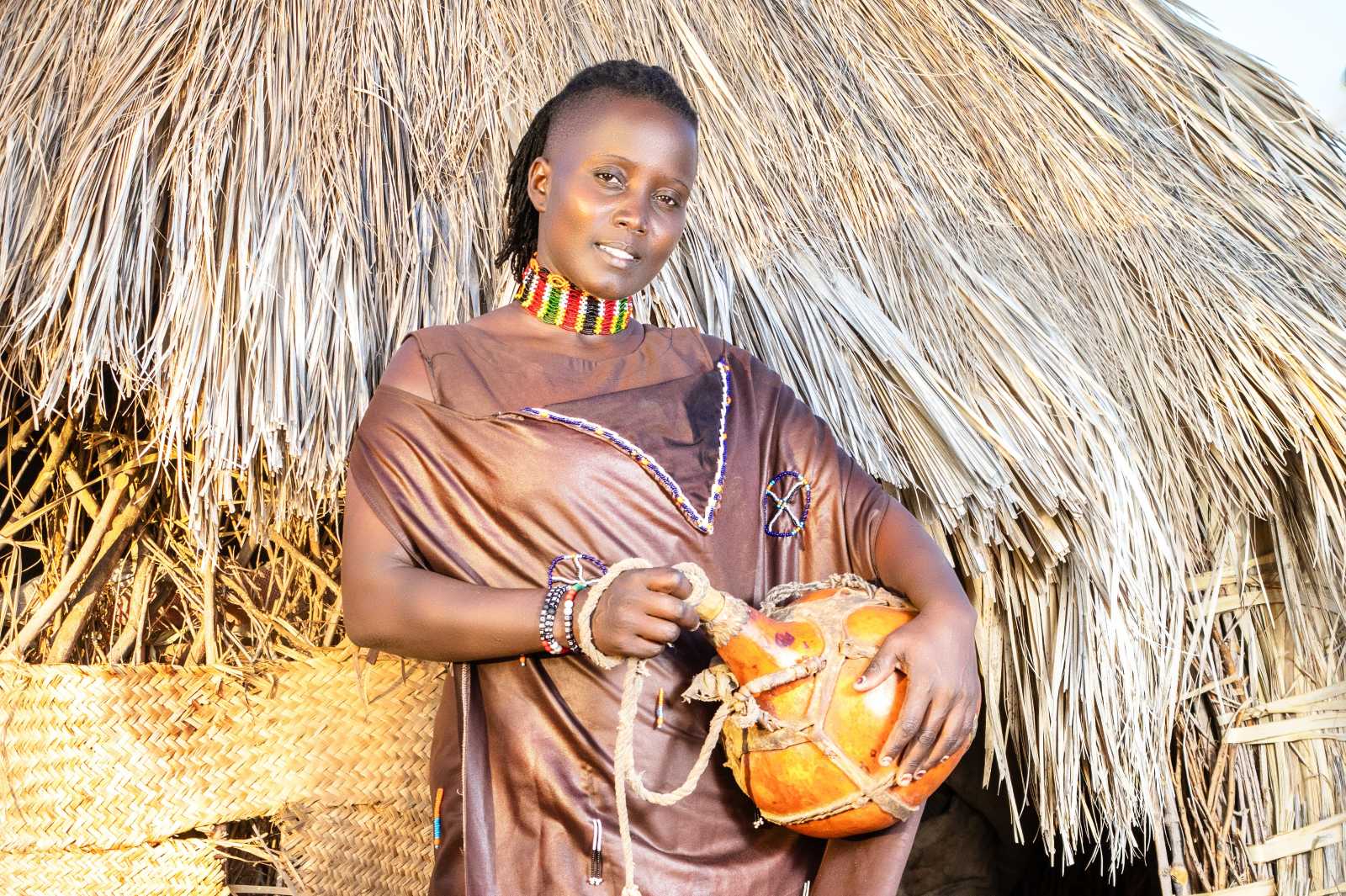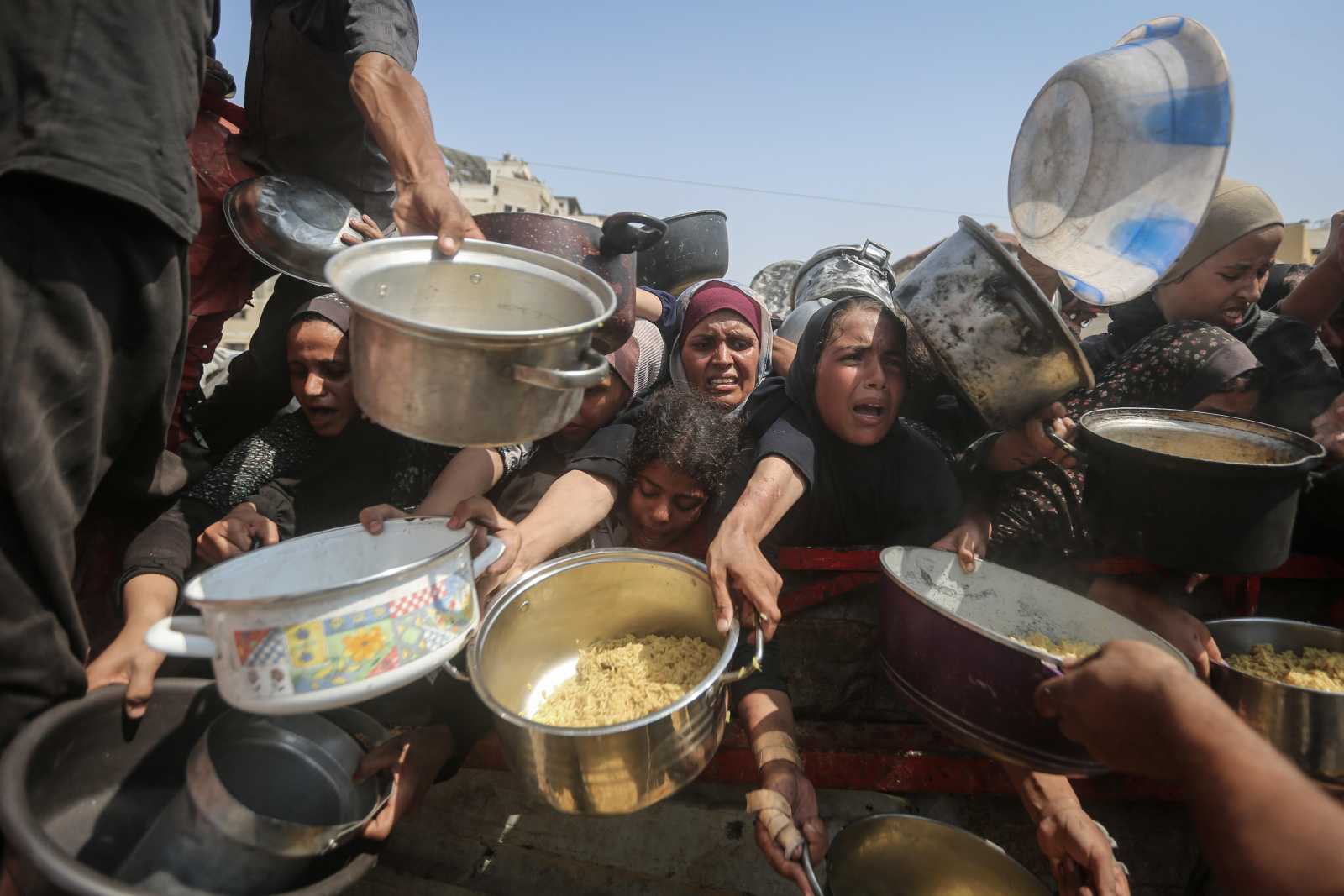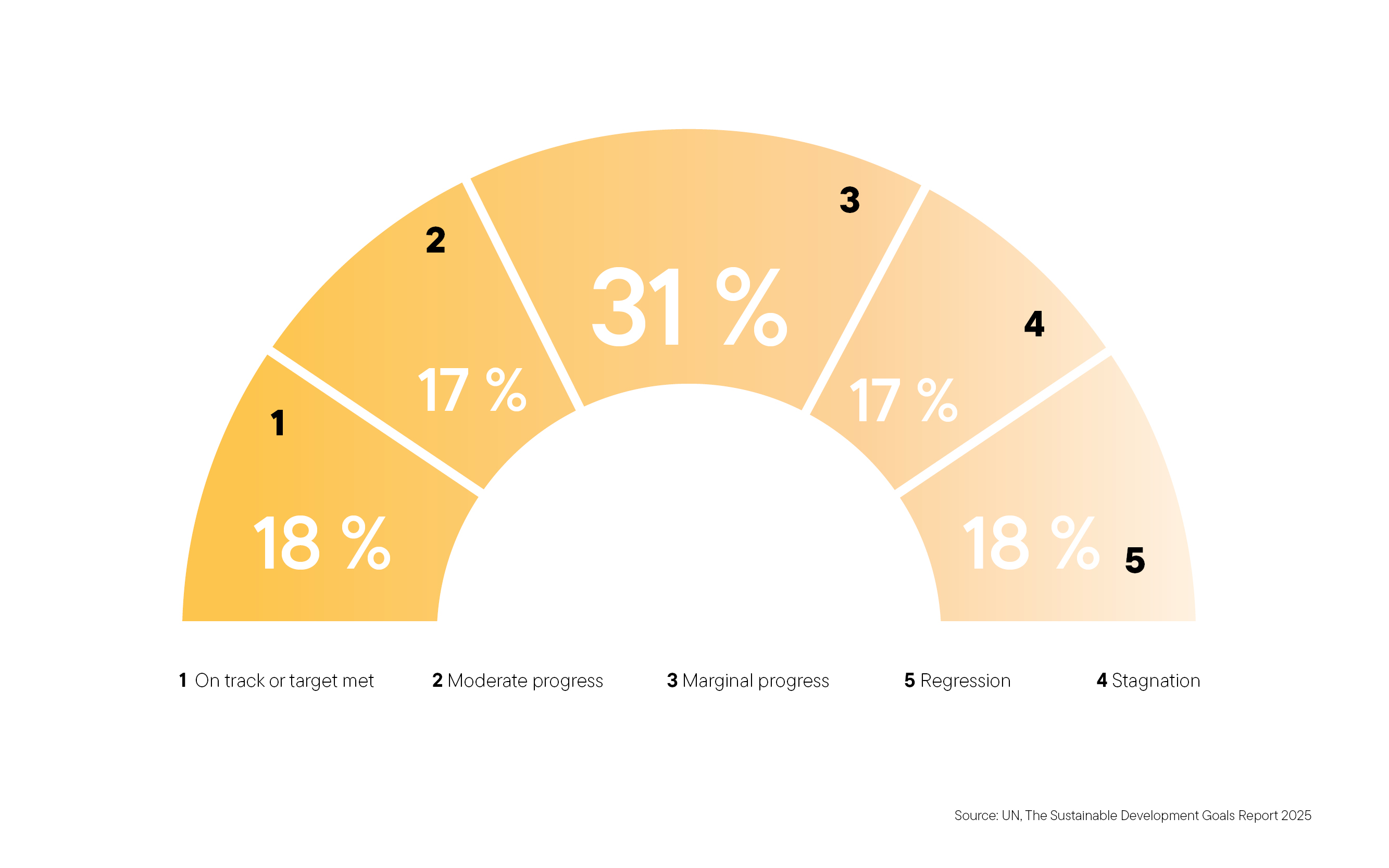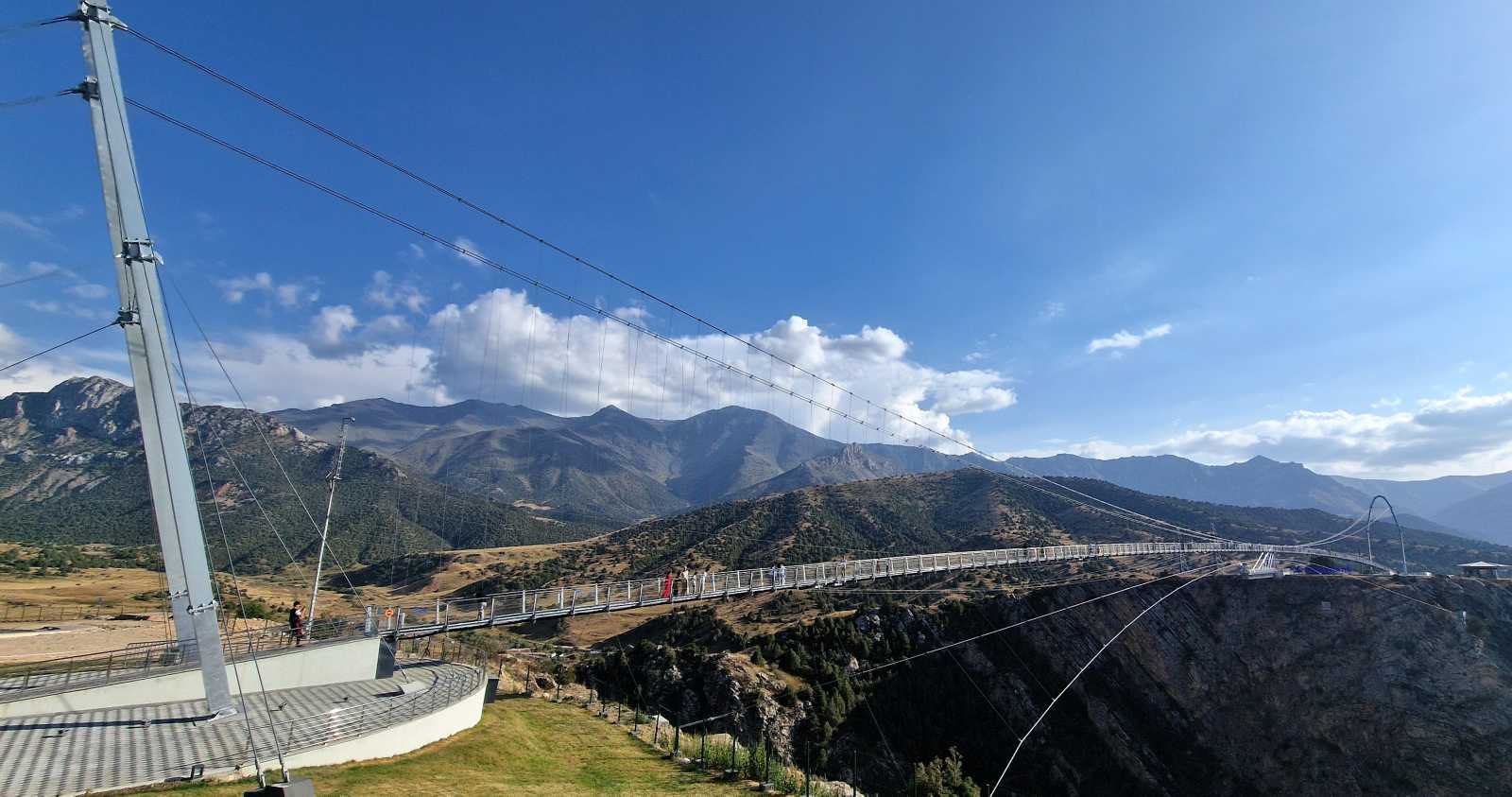Famine
A preventable disaster
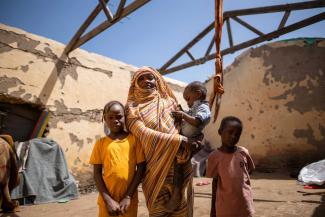
Just three years ago, millions of Sudanese people led self-determined lives with jobs, homes and access to education. Today, many are completely dependent on humanitarian aid. Without decisive diplomatic action and continued humanitarian support, the situation will continue to deteriorate. This will have serious consequences for the already fragile region.
The crisis in Sudan has displaced around 12 million people, approximately 8 million of whom within the country. According to the UNHCR, more than 122 million people are currently displaced worldwide, the highest number ever recorded. Sudan alone accounts for over 10 % of this total: one in ten refugees worldwide currently comes from Sudan, making it the world’s largest displacement crisis. Many families have had to flee multiple times, with no safe place to go. This displacement not only destroys lives, but also severely limits access to food, services and other basic needs.
Almost 25 million people – more than half of Sudan’s population – are affected by hunger. Several regions are already experiencing famine (Integrated Food Security Phase Classification level 5). For the second time in a row, the June planting season was missed. The conflict has destroyed agricultural infrastructure, displaced farmers and decimated livestock. Fertile land remains uncultivated – not because of climate change, but because of war. Once a net exporter of food, Sudan is now barely able to feed its own population.
At the same time, it is becoming ever more difficult to provide humanitarian aid on the ground. Increasing violence and the current rainy season are hampering access to affected areas. What limited access remains is increasingly hampered by bureaucratic hurdles, with even vital services often delayed or blocked altogether. Thanks to international support, some programmes have been able to continue, but this is far from enough, and aid often remains limited to short-term emergency assistance.
The consequences are devastating. Locally organised relief efforts such as community kitchens – facilities for preparing and distributing meals, often run by refugees themselves – are vital. However, cuts in US foreign aid have led to the closure of up to 80 % of these kitchens, leaving hundreds of thousands of people without access to food in the midst of war. Proven structures are being dismantled at a critical moment.
Donor countries are obliged to act
Sudan tops the International Rescue Committee (IRC) Emergency Watchlist 2025 for the second year in a row. However, the international response is clearly inadequate: only 14.1 % of the UN aid plan for 2025 is currently funded. At the London Conference on Sudan in April this year, Germany pledged € 125 million in aid – an important step, but a significant decline from the € 325 million pledged the previous year. Once the budget for 2025 has been passed, the German government should at the very least continue its previous commitment.
Local organisations – especially women-led initiatives – are essential to maintaining basic services and supporting vulnerable populations. However, they are chronically underfunded and heavily burdened by administrative requirements. German support for the Sudan Humanitarian Fund (a pooled fund for multiple donor countries administered by the UN) is crucial, but it must become more flexible and accessible to local actors. Emergency response rooms should also be systematically integrated. Through equitable risk sharing and simplified administrative requirements, local aid workers can not only provide assistance, but also actively contribute to reconstruction and greater resilience.
Sudan needs more than just emergency aid – the country needs long-term investment in education, infrastructure and livelihoods. Germany and other donors should invest specifically in measures that align humanitarian aid with long-term goals for stability and reconstruction.
The role of Germany
Germany’s role must go beyond mere financial support. The current approach – characterised by short-term financing cycles and fragmented diplomatic efforts – will not bring about a ceasefire. The crisis in Sudan requires a strategic response: long-term commitments combined with sustained political engagement. Germany has the necessary diplomatic weight and credibility to take on a leading role here.
The German government should continue to keep Sudan high on its foreign policy and humanitarian agenda. This includes supporting the African Union in establishing a joint negotiating forum for de-escalation. The fact that the London conference failed to produce both a joint communiqué and a contact group shows how urgently a coordinated approach is needed.
At the same time, regional and international actors continue to contribute to the escalation, for example through military or financial support for the parties to the conflict. Germany should advocate de-escalation both publicly and through diplomatic talks. Economic levers such as exports of Sudanese gold and other raw materials should also be used to increase pressure for serious negotiations.
It is also essential to consistently advocate for international humanitarian law and human rights. Protecting civilians and securing humanitarian infrastructure are not only a moral obligation, they are also strategically essential for regional stability.
Hesitation costs lives
As long as there is no political progress, providing the Sudanese population with essential aid must remain a top priority. Germany should advocate for an immediate three-month suspension of bureaucratic obstacles to access for aid, including unrestricted UN access to areas outside the control of Sudanese military forces. Humanitarian access must not be contingent upon a ceasefire.
Germany should use its influence in multilateral forums to maintain international attention on Sudan. The goal must be to protect civilians, ensure humanitarian access and hold regional actors accountable.
The crisis in Sudan is not temporary. It is a long-term, systemic collapse – and one that was foreseeable. The Sudanese people are resilient and committed, but they cannot rebuild alone.
Links
https://www.rescue.org/de/report/watchlist2025
Eatizaz Yousif is the country director of IRC Sudan.
Corina Pfitzner is the managing director of IRC in Germany.
executiveoffice.germany@rescue.org
In April 2025, Corina Pfitzner, Managing Director of IRC Germany, travelled to Sudan with representatives of the German Federal Foreign Office to gain insights into the catastrophic humanitarian situation and visit IRC projects on the ground. The trip took them to a region marked by violence, fragile structures and limited access to basic services. The delegation was accompanied by Eatizaz Yousif, IRC Country Director for Sudan, who has been active in the country since the war began in 2023 and was herself displaced. Thanks to her experience, IRC was able to respond quickly to the crisis.
Planning the trip was extremely complex due to the unstable security situation. General movement within the country requires bureaucratic coordination, and power outages, limited communication, and overburdened infrastructure make the work even more difficult. After talks with UN organisations in Port Sudan, the delegation travelled on to the city of Gedaref – a logistical feat. In Tunaydbah camp, they visited IRC projects providing healthcare, psychosocial support and cash assistance. Despite the presence of international organisations, the situation remains critical. Humanitarian needs are increasing, and access is becoming even more contested. The trip demonstrated how important international support and cooperation with local actors are for effective aid and long-term resilience.


